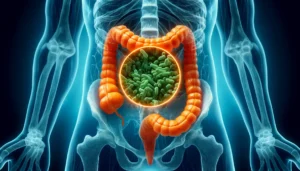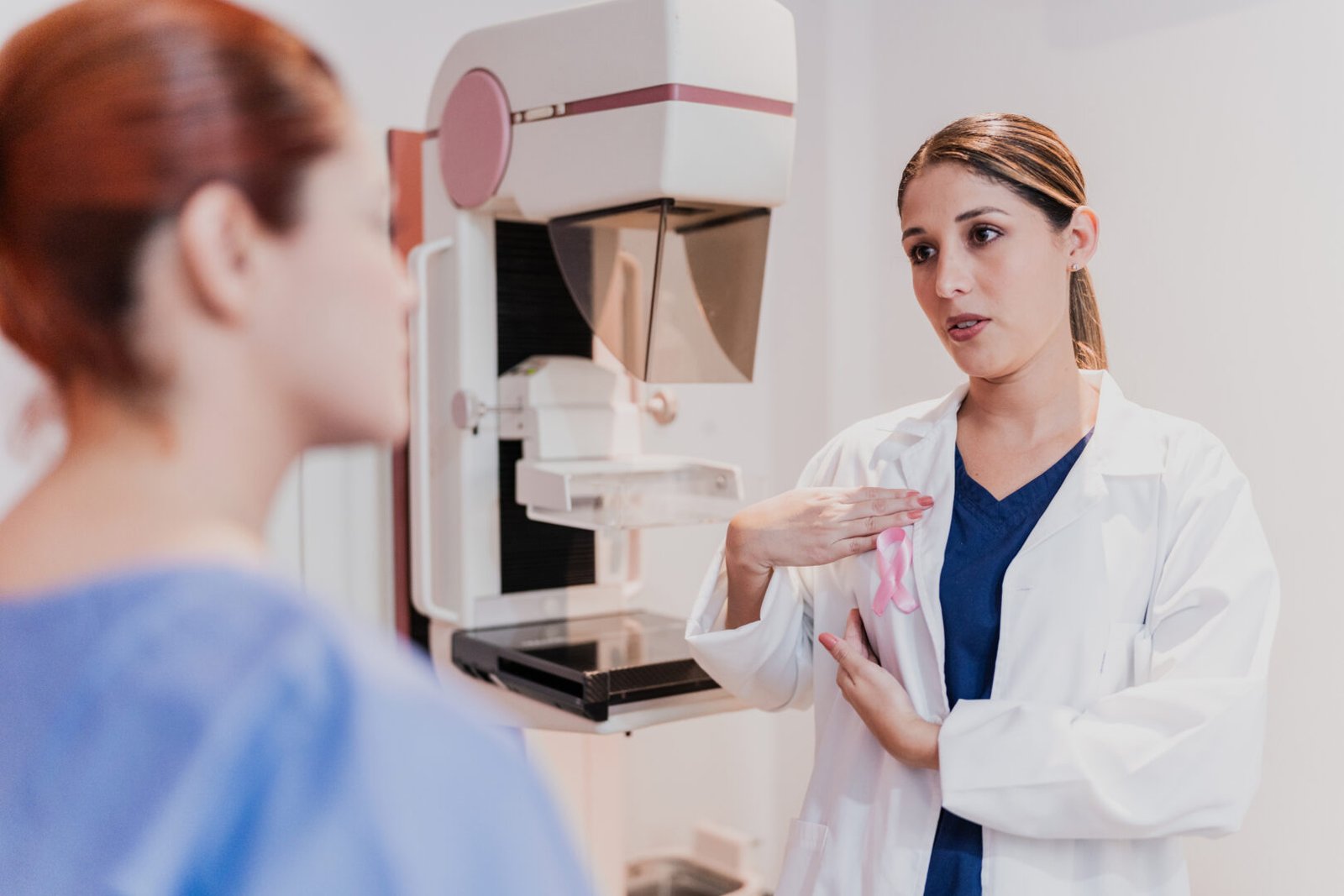Exploring How Flaxseed May Prevent Breast Cancer
Breast cancer remains a significant health challenge worldwide, driving ongoing research into more effective prevention strategies. Among various dietary interventions explored for their potential health benefits, flaxseed may prevent breast cancer by influencing our body’s internal processes in novel ways. Recent scientific studies have begun to shed light on how everyday foods like flaxseed could play a pivotal role in cancer prevention. This article explains groundbreaking research that highlights the interaction between flaxseed and the gut microbiome—a key player in our overall health and its impact on breast cancer risk.
In this discussion, we will explore the components of flaxseed that could contribute to cancer prevention, specifically focusing on a study published in the Microbiology Spectrum journal. The study offers compelling evidence that flaxseed’s effects on the gut microbiome and its subsequent influence on microRNAs in the mammary gland could pave the way for novel dietary strategies in the fight against breast cancer. By understanding these interactions, we can better appreciate the potential of dietary choices in managing health risks and shaping future research in cancer prevention.
Stay tuned as we break down the complex science into understandable insights, providing you with both knowledge and practical tips on integrating flaxseed into your diet for its potential health benefits.
Lignans’ Role in Cancer Prevention
Lignans are chemical compounds found in high concentrations in flaxseed. They are known for their phytoestrogenic properties and potential role in cancer prevention, including breast cancer. A Microbiology Spectrum study highlights the importance of lignans. They influence the gut microbiota and miRNA profiles in the mammary gland.
Flaxseed lignans are metabolized by gut bacteria into enterolignans, such as enterodiol and enterolactone. These metabolites exhibit estrogenic activities. They can help modulate hormone balance in the body. Hormonal regulation is crucial in breast cancer, as estrogen levels are linked to the risk and progression of hormone-dependent cancers.
The metabolism of lignans allows these compounds to impact miRNA expression in the mammary gland. This relationship was a focal point in the study. It highlights how dietary lignans can modulate gene expression pathways. These pathways are associated with tumor suppression and cancer cell proliferation. “Importantly, we found that lignan components generate specific miRNA responses in the mammary gland,” notes Elena M. Comelli, Ph.D. “These miRNAs are involved in pathways that could potentially be exploited to reduce breast cancer risk.”
“Importantly, we found that lignan components generate specific miRNA responses in the mammary gland. These miRNAs are involved in pathways that could potentially be exploited to reduce breast cancer risk.” – Elena M. Comelli, Ph.D.
Research supports these findings. Studies have linked high concentrations of circulating lignans with reduced breast cancer mortality, especially in postmenopausal women. The biological activities of lignans include anti-proliferative and pro-apoptotic effects. These contribute to their protective role against cancer development.
The interaction between dietary lignans and the microbiota suggests a larger role of gut health in cancer prevention. This underscores the potential of dietary strategies targeting gut microbiome composition to mitigate cancer risks.

By understanding the role of lignans and their interaction with the gut microbiota, we can appreciate how flaxseed may contribute toward cancer prevention. This opens up possibilities for dietary recommendations and interventions. These could help individuals at high risk of breast cancer manage their health proactively through nutrition.
This opens up possibilities for dietary recommendations and interventions. These could help individuals at high risk of breast cancer manage their health proactively through nutrition.
Practical Advice: Incorporating Flaxseed into Your Diet
Incorporating flaxseed into your daily diet is a practical step toward leveraging its potential cancer-preventive properties. Flaxseed is versatile and can be easily added to various meals, making it convenient to add to your diet.
Ground flaxseed is more beneficial than whole seeds; the body can digest it better, allowing for optimal absorption of nutrients. You can start by adding a tablespoon of ground flaxseed to your morning smoothie or oatmeal. This simple step enhances fiber intake and introduces beneficial lignans into your diet.

Also, flaxseed oil serves as a healthy fat source that can enrich salad dressings or be drizzled over cooked vegetables. It’s rich in omega-3 fatty acids, although it doesn’t contain lignans like the ground seeds. So using both forms can be beneficial. And baking enthusiasts substitute can flaxseed meal for a portion of flour in recipes like bread, muffins, and cookies. It adds a nutty flavor and boosts the nutritional profile of your homemade treats.
Generally, starting with small amounts and gradually increasing the intake is advisable to allow your digestive system to adjust. Most adults can safely consume up to two tablespoons of ground flaxseed daily.
Key Takeaways: Flaxseed For Cancer Prevention

- Impact on Breast Cancer Prevention: Flaxseed may reduce breast cancer risk by influencing the gut microbiome and miRNA expression in the mammary gland. This relationship offers a pathway through which dietary flaxseed can modulate breast health.
- Role of Lignans: Flaxseed is a rich source of lignans, which are metabolized by gut bacteria into compounds that have anti-cancer properties. This process is crucial for the protective effects of flaxseed against breast cancer.
- Dietary Integration: Incorporating flaxseed into your diet can be simple. Adding ground flaxseed to smoothies, oatmeal, or baked goods enhances fiber intake and introduces beneficial compounds into your diet.
- Proactive Health Strategy: Adjusting the diet to include flaxseed is a proactive method that influences key regulatory pathways involved in cancer development. This approach highlights the importance of preventive nutritional strategies in health management.
Final Thoughts
As we’ve seen, flaxseed may significantly prevent breast cancer. Recent research highlights the impact of dietary choices on health. It particularly focuses on mechanisms involving the gut microbiome and miRNA expression in the mammary gland. Flaxseed is rich in lignans. Their interaction with gut bacteria shows how diet can influence cancer-related processes.
Flaxseed’s ability to modulate the gut-mammary gland axis presents a promising way to reduce breast cancer risk. This underscores the role of dietary interventions in preventive health strategies and cancer research. Moving forward, it is crucial for individuals to consider incorporating flaxseed into their diets. This can enhance overall health and act as a preventive measure against cancer.
We encourage readers to discuss these findings with healthcare providers. This will help better understand how flaxseed can fit into a healthy lifestyle tailored to individual health needs and conditions. Let’s take proactive steps to integrate science-backed nutritional choices into our daily lives. This can improve our health and potentially protect against serious diseases like breast cancer.
Reference
- Cecal microbiota and mammary gland microRNA signatures are related and modifiable by dietary flaxseed with implications for breast cancer risk. Microbiology Spectrum
A Note to Commercial Bakeries

- You can easily produce delicious flax-based keto-friendly products which are clean label, high protein, high fiber and plant-based!
- Recipes provided on all bulk orders, with ongoing customer support
- Worldwide shipping
- To order, visit our wholesale distributor, SnowCap Enterprises, and search: Powerflax Gold Low Carb Mix (SNC80).
- Get in touch with us!



